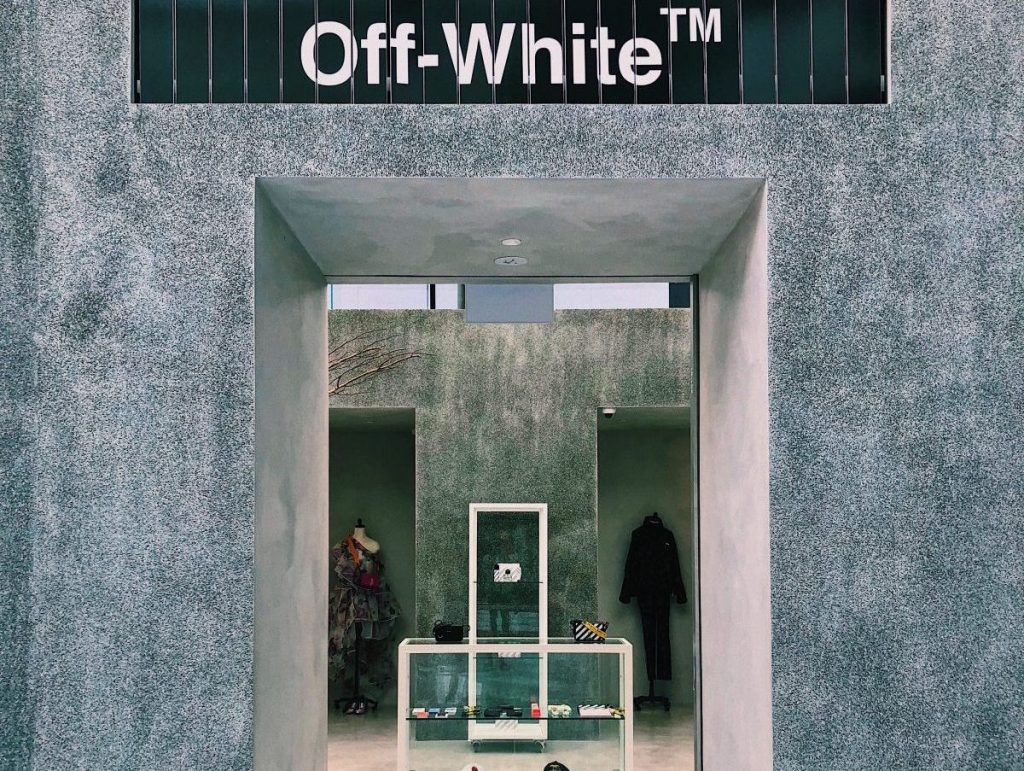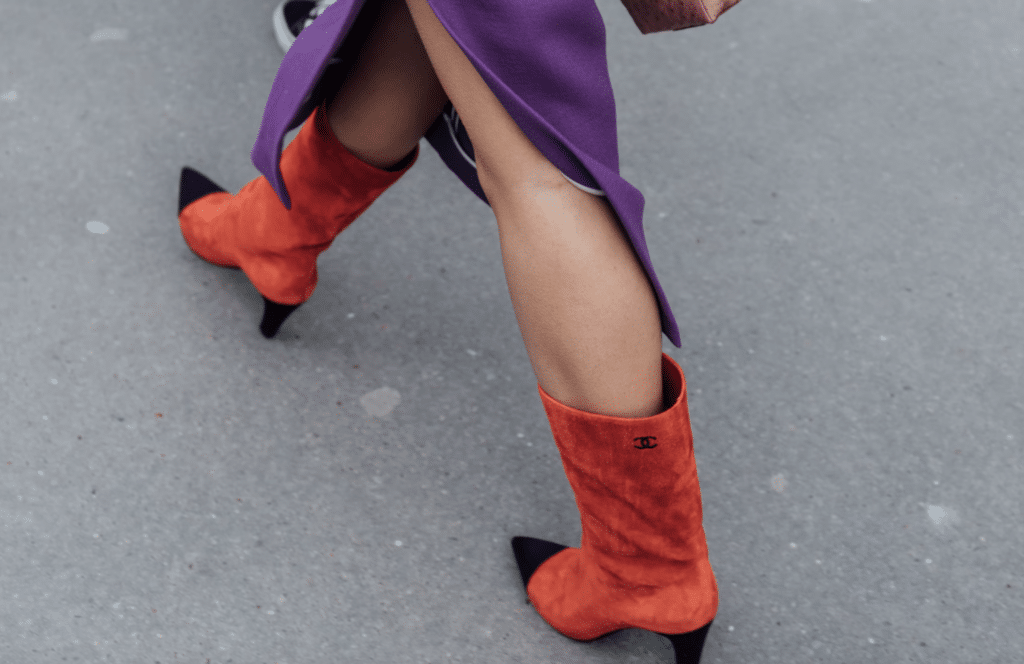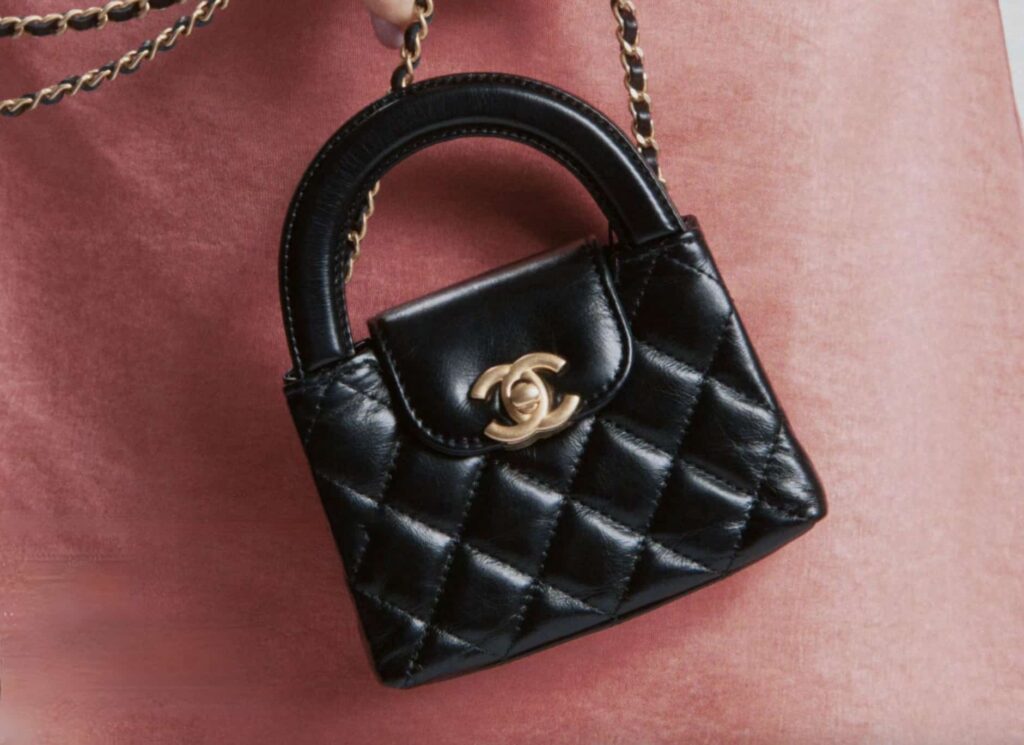From Nike’s recent acquisition of virtual brand RTFKT and LVMH’s back-to-back deals to acquire stakes in Phoebe Philo’s soon-to-launch eponymous label and the late Virgil Abloh’s brand Off-White (and that same month, Etro announced that it entered into a binding agreement in which LVMH-affiliated L Catterton Europe will acquire a majority stake) to the formal close of a nearly $9 billion eyewear-centric deal between EssilorLuxottica and GrandVision, and the subsequent resolution of the parties’ deal-related legal battle, 2021 was filled with headline-making mergers and acquisitions, funding rounds (including in the resale space), and legal actions in connection with a number of those acquisitions, at least some of which were complicated – or at least, more nuanced – thanks to the enduring impact of the COVID-19 pandemic.
Here is a look at some of the most noteworthy deals that took place in 2021 and a couple of related legal battles that came with them …
Nike, Inc. Acquires RTFKT
In yet another major step into the metaverse, NIKE, Inc. announced on December 13 that it will acquire RTFKT, “a leading brand that leverages cutting edge innovation to deliver next generation collectibles that merge culture and gaming.” Nike President and CEO John Donahoe said in a statement that the acquisition of the almost two-year old RTFKT (pronounced “artifact”) is “another step that accelerates Nike’s digital transformation and allows us to serve athletes and creators at the intersection of sport, creativity, gaming and culture,” and one that will help to “extend Nike’s digital footprint and capabilities.”
Etsy Buys Second-Hand Shopping App Depop for $1.62 Billion
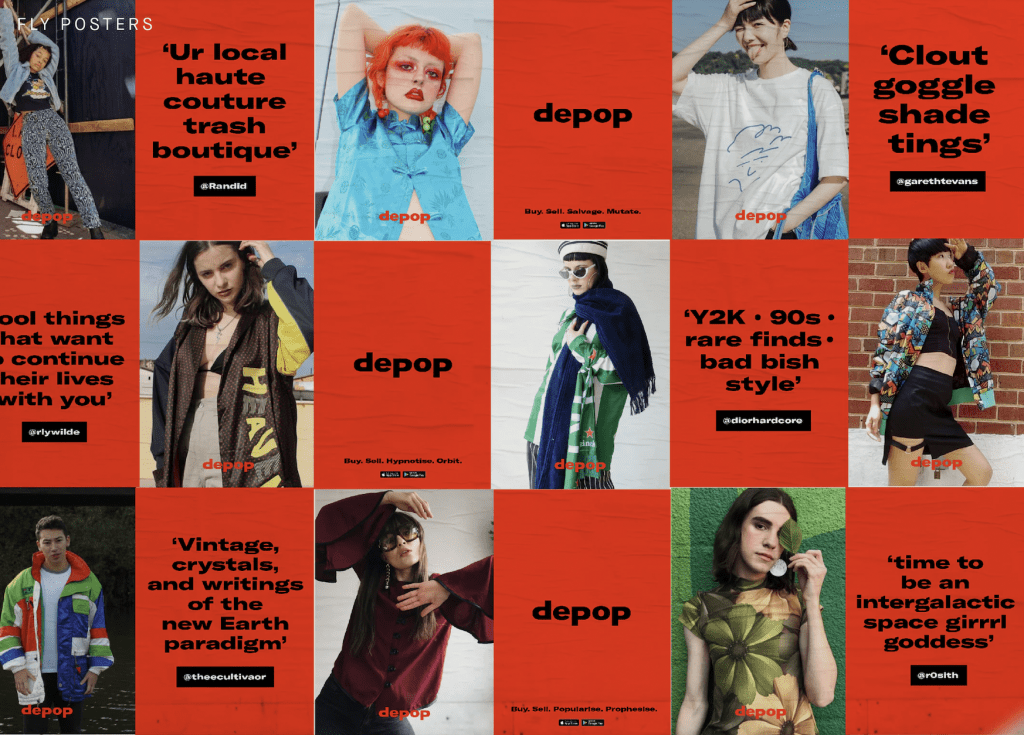
In a quest to target Gen-Z consumers (i.e., those born between the late 1990s and the early 2010s), who are driving both social shopping and largescale pushes in sustainability, Etsy announced in June that it would acquire burgeoning British shopping app Depop for $1.62 billion. Since its founding in 2011, London-based Depop has made its name in the pre-owned fashion space, garnering some 30 million registered users across 150 countries who can buy and sell apparel and accessories by way of its consumer-to-consumer e-commerce marketplace.
The acquisition of Depop – which makes use of a social shopping element that positions it as a “mix of eBay and Instagram” – gives Etsy access to a sweeping pool of younger consumers, with the Brooklyn, New York-headquartered e-commerce marketplace asserting in a statement at the time that more than 90 percent of its users are under age 26.
Cash Continues to Flow into Resale
2021 was filled with further examples of investors eyeing the secondary market. Just this month, Rebag revealed a $33 million Series E round. This fall, Vestiaire raised $209 million, bringing its valuation to $1.7 billion dollars; Tradesy raised $67 million in a Series D, and men’s fashion and streetwear-centric marketplace Grailed announced a $60 million Series B funding round led by fellow resale player GOAT Group and with participation from Groupe Artémis, along with existing investors Thrive Capital and Index Ventures. Also raising cash this year: StockX, Vinted, Reflaunt, and GOAT, among others. You can find a running list of secondary market deals here.
LVMH Takes Stakes in Off-White, Phoebe Philo’s New Label
LVMH made headlines this summer when it announced back-to-back deals with the late Virgil Abloh’s brand Off-White and former Celine creative director Phoebe Philo’s brand new project. In connection with Philo’s July announcement that she is launching her own label, LVMH revealed that it had taken a minority stake. The size of LVMH’s minority position and the terms of the deal have not been disclosed. Days later, LVMH announced that it would buy a majority stake in Off-White, and also enter into a new “arrangement” with Abloh to “jointly pursue new projects across luxury categories.”
Also in July, Etro announced on July 18 that it entered into a binding agreement to partner with L Catterton. Under the terms of the agreement, LVMH-affiliated L Catterton Europe will acquire a majority stake in Etro, while the Etro family will retain a significant minority.
Ferrari Owner Exor Takes 24% Stake in Louboutin
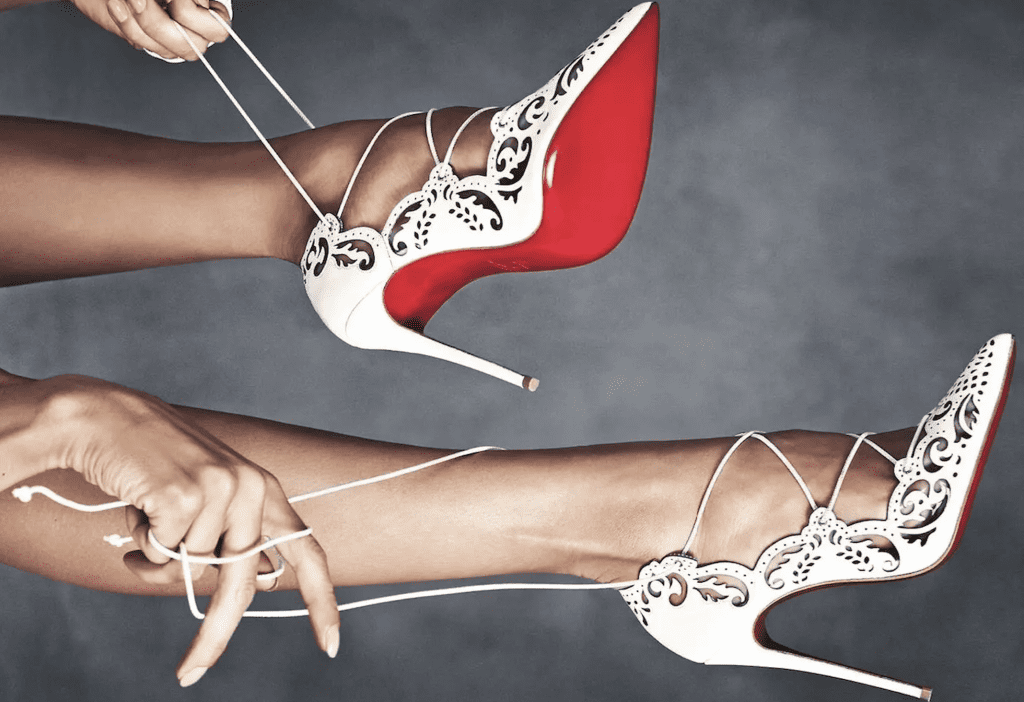
In March, Exor N.V. made good on one of the names that had been floated as a key target of luxury-level M&A interest for 2021: Christian Louboutin. The Ferrari-owner announced that it would take a 24 percent stake in the independently-owned Louboutin in exchange for 541 million euros ($640 million), a deal that values the 30-year old Paris-based footwear brand at $2.3 billion euros ($2.73 billion) and sets it up for expansion, particularly in China.
Exor’s management has since revealed that a rumored deal with Armani is not on the table. Luxury is, nonetheless, among the three sectors that the Netherlands-incorporated investment group run by Italy’s Agnelli family will focus on going forward.
Prada, Zegna Take Stakes in Cashmere Supplier
Prada revealed in June that it had partnered with fellow Italian fashion company Zegna Group to acquire a controlling stake in Italian cashmere producer Filati Biagioli Modesto in furtherance of a quest to “secure a domestic supply chain and luxury-goods manufacturing expertise.” The two big-name fashion entities each took a 40 percent stake in the Montale-based supplier, which is known for its Italian cashmere and “noble yarns.”
The acquisition is one of the latest deal in a trend that has seen some luxury goods brands bring an array of suppliers and services under their own roofs – or at least amass sizable stakes in the companies – in an effort to exert increased control over the manufacturing of their offerings. Over the past decade, in particular, fashion’s most esteemed luxury names have been busy buying up different aspects of their supply chains in part to ensure closer ties to a supply of raw materials.
OTB Acquires Jil Sander, Plans for Italian Luxury Hub
In April, Renzo Rosso’s OTB finalized its acquisition of Jil Sander from Japanese retailer Onward Holdings, the terms of which were never disclosed. The German fashion brand joins OTB’s growing roster of brands, including Diesel, Maison Margiela, Marni, Viktor & Rolf, Amiri, Paula Cademartori, Staff International and Brave Kid. Speaking about the close of the deal, OTB Group CEO Ubaldo Minelli says that the Breganze, Italy-based fashion group is looking to “accelerate its long-time project to create an Italian luxury hub … not only looking at acquiring fashion brands, but also at possibly buying firms in the production and distribution sectors.”
And as indicated by OTB’s recent launch of a new business unit that will be entirely dedicated to the development of virtual products, projects and experiences, that hub will seemingly include efforts in the metaverse.
EssilorLuxottica, GrandVision Finalize Merger Amid Legal Battle
On the heels of getting approval from the European Commission early this year following an “in-depth” competition investigation, EssilorLuxottica completed its acquisition of a 76.72 percent ownership interest in multi-national optical retailer GrandVision in exchange for 7.3 billion euros ($8.7 billion) in July.
The deal was finalized just over two years after it was first announced that the two entities had entered into an agreement. Hardly a friction-less transaction, EssilorLuxottica made headlines in July 2020 when it sued GrandVision in order to obtain information related to the latter’s efforts in connection with the COVID pandemic, namely, “the way GrandVision has managed the course of its business during the COVID-19 crisis, as well as the extent to which GrandVision has breached its obligations under the [merger] agreement.” In the since-dismissed case that it filed with a district court in the Netherlands, EssilorLuxottica argued that “despite repeated requests, GrandVision has not provided this information on a voluntary basis, leaving EssilorLuxottica with no other option but to resort to legal proceedings.”
In June, a month before the deal was finalized, a Dutch arbitration tribunal determined that GrandVision failed to make good on its obligations under the parties’ takeover agreement, including by suspending payments to store owners and suppliers. While the ruling enabled EssilorLuxottica to get out of the deal, the company stated in its July 20 Interim Financial Report that “given the strategic rationale, [it] decided to pursue and close the transaction on July 1, 2021.”
Reports at the time suggested that EssilorLuxottica was preparing to file suit against GrandVision for damages, no such suit appears to have come into fruition.
Coty Escapes Class Action Claims Over $12.5 Billion Buys
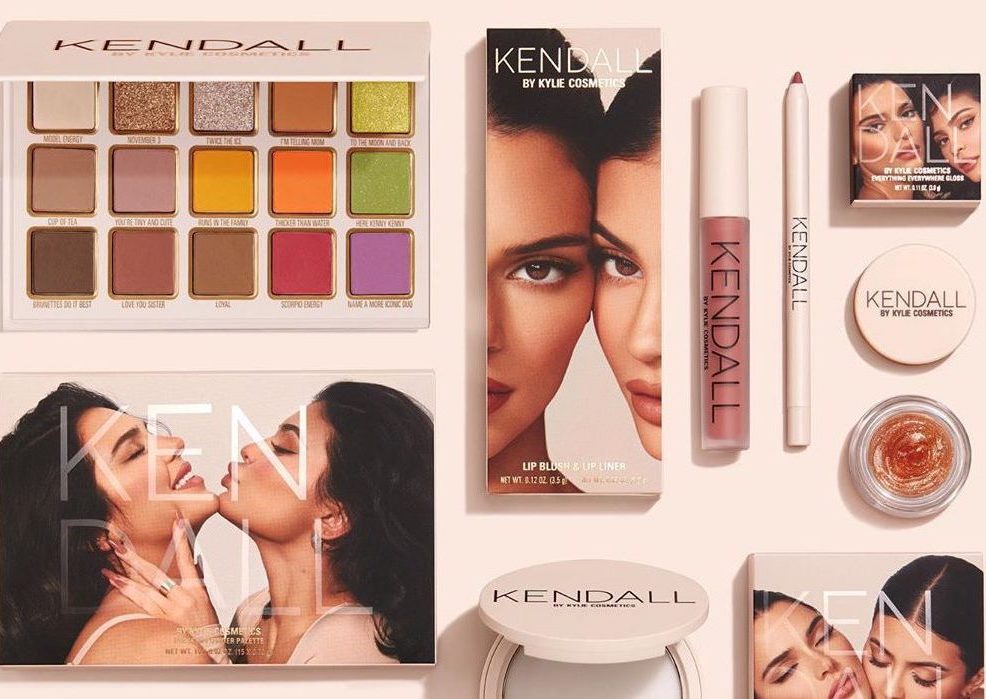
And finally, Coty and a handful of its highly-ranking officers and directors managed to escape the proposed class action lawsuit that was waged against them last year for allegedly running afoul of U.S. federal securities laws in connection with the P&G Specialty Beauty Business and Kylie Cosmetics acquisitions. In the complaint that she filed against the NYSE-traded beauty giant in a New York federal court in September 2020, Coty shareholder Crystal Garrett-Evans argued that the defendants engaged in “a fraudulent scheme and course of business that operated [to deceive] purchasers of Coty shares by disseminating materially false and/or misleading statements and/or concealing material adverse facts … about Coty’s business, operations, and prospects.”
Among the things that Coty allegedly misrepresented and/or failed to disclose? Its allegedly “inadequate processes and procedures in place to assess and properly value” its 2016 and 2019 acquisitions of P&G Specialty Beauty Business and Kylie Cosmetics.” As a result, “Coty overpaid for [them].” More than that, Garrett-Evans claimed in the suit – which was filed a several months after Forbes reported that Jenner and her team had been “inflating the size and success of her [Kylie Cosmetics] business for years” – that the defendants were either “aware or severely reckless in not knowing that Coty did not have adequate processes and procedures in place to assess and properly value acquisitions.”
In January 2021, after being appointed lead plaintiff (because she had the largest damages claim), Coty shareholder Susan Nock filed an amended complaint, shifting the focus away from Coty’s acquisition of Kylie Cosmetics entirely (the amended complaint was devoid of any mention of Jenner’s brand), and centering her claims exclusively on its October 2016 purchase of the P&G Specialty Beauty Business for $12.5 billion, or what Reuters characterized at the time as “the biggest cosmetics merger in recent history.”
This spring, the defendants sought to get the amended complaint tossed out in its entirety, arguing in a March 2021 motion to dismiss that the plaintiffs failed to allege actionable omissions and scienter (i.e., intent or knowledge of wrongdoing), and in an opinion and order dated August 3, Judge Louis Stanton of the U.S. District Court for the Southern District of New York agreed.
On the Horizon
In 2022, more special purpose acquisition corporation (“SPAC”) listings may be in the works for fashion brands, following Zegna’s NYSE debut this week. Net-a-Porter owner Richemont revealed that it has made “progress” in a heavily-reported deal with Farfetch. Our sources tell us that Prada is looking to build out a bigger group, as is Versace and Michael Kors’ parent Capri Holdings, which is actively on the hunt to build up its arsenal of brands.




